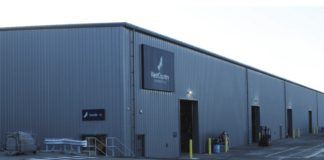The organic food and drink market is booming in the UK. Growth in the sector is strong, at around 5% this year, compared to an overall fall in sales in the non-organic food and drink market.
The growth is expected to continue, and sales are on course to smash the £2bn mark later this year. As countries such as France and Germany have shown, there is no reason why organic should be a niche alternative, and the organic market is showing patterns that offer fantastic opportunities for savvy wholesalers.
Owing to an increasing demand for a quality offering in food outlets, particularly in public institutions, the foodservice sector is increasing its demand for organic. Last year, up 28.5% on the previous year, more than £9m was spent on organic products through the Soil Association’s Food for Life Catering Mark, an independent accreditation that encourages caterers to improve the freshness, quality, provenance and sustainability of their meals. As more and more catering operations aim to achieve the Catering Mark, with more than 50% of English primary schools now holding at least the Bronze Catering Mark, they are on the lookout locally and nationally for organic wholesalers and suppliers who will provide good value.
The Catering Mark Supplier Scheme was created to address this, and to provide the foundations for a reliable network of organic wholesale suppliers. Simply put, it is a register of suppliers designed to help Catering Mark kitchen managers source the correct products.
Membership of the scheme gives a supplier access to a number of benefits such as training, technical tools and the opportunity to feature on the Soil Association’s online supplier directory.
Suppliers report that membership has helped them to attract more customers. Freddie Watson from North Yorkshire-based wholesaler The Organic Pantry, says: “We joined the Catering Mark Supplier Scheme in 2015 because it enabled us to show our customers we are committed to helping them improve their food sourcing practices. We are increasingly being asked about the Catering Mark and being a Catering Mark supplier has really helped us to meet customers’ needs.”
12% of shoppers surveyed by Nielsen this summer said that they actively look for organic produce. While sales of organic are growing through supermarkets, the large retailers are losing their overall share of the organic market to independent retailers, small stores and direct sales such as box schemes.
Independents are seeing sales of organic products grow by 7.5%, compared to an average of 4.9% across other outlets selling organic items, and thus, it is an area where wholesalers have a strong opportunity to compete with supermarket own-brand products, and an area where they can build or maintain profitable sales.
Meanwhile, for those wholesalers with the desire and resource to reach the cannier consumer, selling directly to food buying groups can be an effective supplement to a business’s primary area of sales. Thanks to commonly seeing price premiums on organic food, wholesale is recognised as the key to eating organic without overspending.
Organic buying groups work like fuel clubs, with people pulling together to order organic goods and then dividing up the purchases. For wholesalers such as West Yorkshire-based Suma, these groups can be an intrinsic part of their business model, and can even direct sales.
Current growth in the organic market looks hopeful for the sector’s future – according to Nielsen and the Soil Association 83% of British households bought organic last year. It is obvious that organic has a huge part to play in the future retail landscape, and more people than ever are aware of organic and seeking out organic purchases.
Some wholesalers are already benefitting from this trend, and with the right approach, many more wholesalers stand to do so, too.







